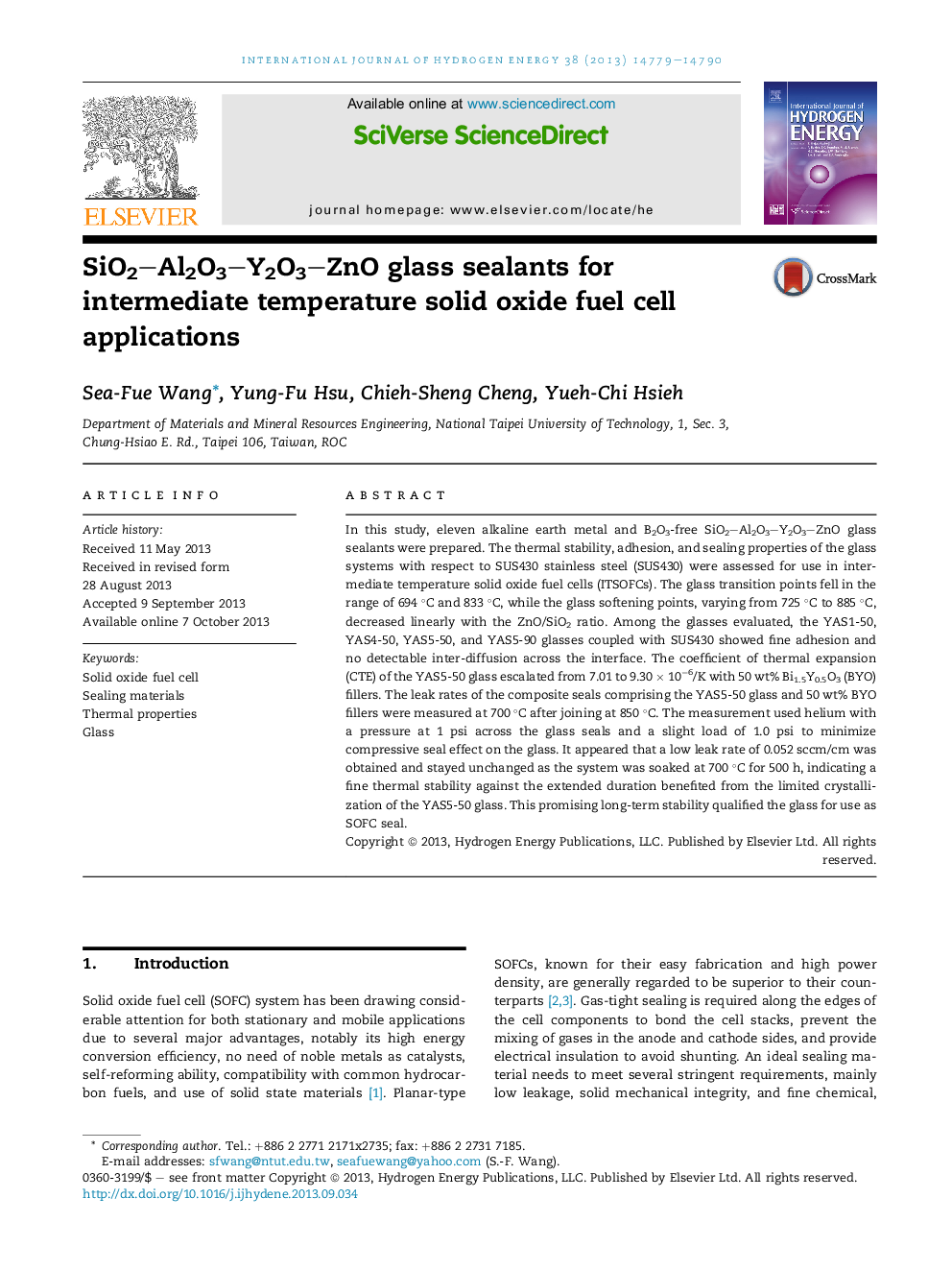| Article ID | Journal | Published Year | Pages | File Type |
|---|---|---|---|---|
| 7721398 | International Journal of Hydrogen Energy | 2013 | 12 Pages |
Abstract
In this study, eleven alkaline earth metal and B2O3-free SiO2-Al2O3-Y2O3-ZnO glass sealants were prepared. The thermal stability, adhesion, and sealing properties of the glass systems with respect to SUS430 stainless steel (SUS430) were assessed for use in intermediate temperature solid oxide fuel cells (ITSOFCs). The glass transition points fell in the range of 694 °C and 833 °C, while the glass softening points, varying from 725 °C to 885 °C, decreased linearly with the ZnO/SiO2 ratio. Among the glasses evaluated, the YAS1-50, YAS4-50, YAS5-50, and YAS5-90 glasses coupled with SUS430 showed fine adhesion and no detectable inter-diffusion across the interface. The coefficient of thermal expansion (CTE) of the YAS5-50 glass escalated from 7.01 to 9.30 Ã 10â6/K with 50 wt% Bi1.5Y0.5O3 (BYO) fillers. The leak rates of the composite seals comprising the YAS5-50 glass and 50 wt% BYO fillers were measured at 700 °C after joining at 850 °C. The measurement used helium with a pressure at 1 psi across the glass seals and a slight load of 1.0 psi to minimize compressive seal effect on the glass. It appeared that a low leak rate of 0.052 sccm/cm was obtained and stayed unchanged as the system was soaked at 700 °C for 500 h, indicating a fine thermal stability against the extended duration benefited from the limited crystallization of the YAS5-50 glass. This promising long-term stability qualified the glass for use as SOFC seal.
Related Topics
Physical Sciences and Engineering
Chemistry
Electrochemistry
Authors
Sea-Fue Wang, Yung-Fu Hsu, Chieh-Sheng Cheng, Yueh-Chi Hsieh,
